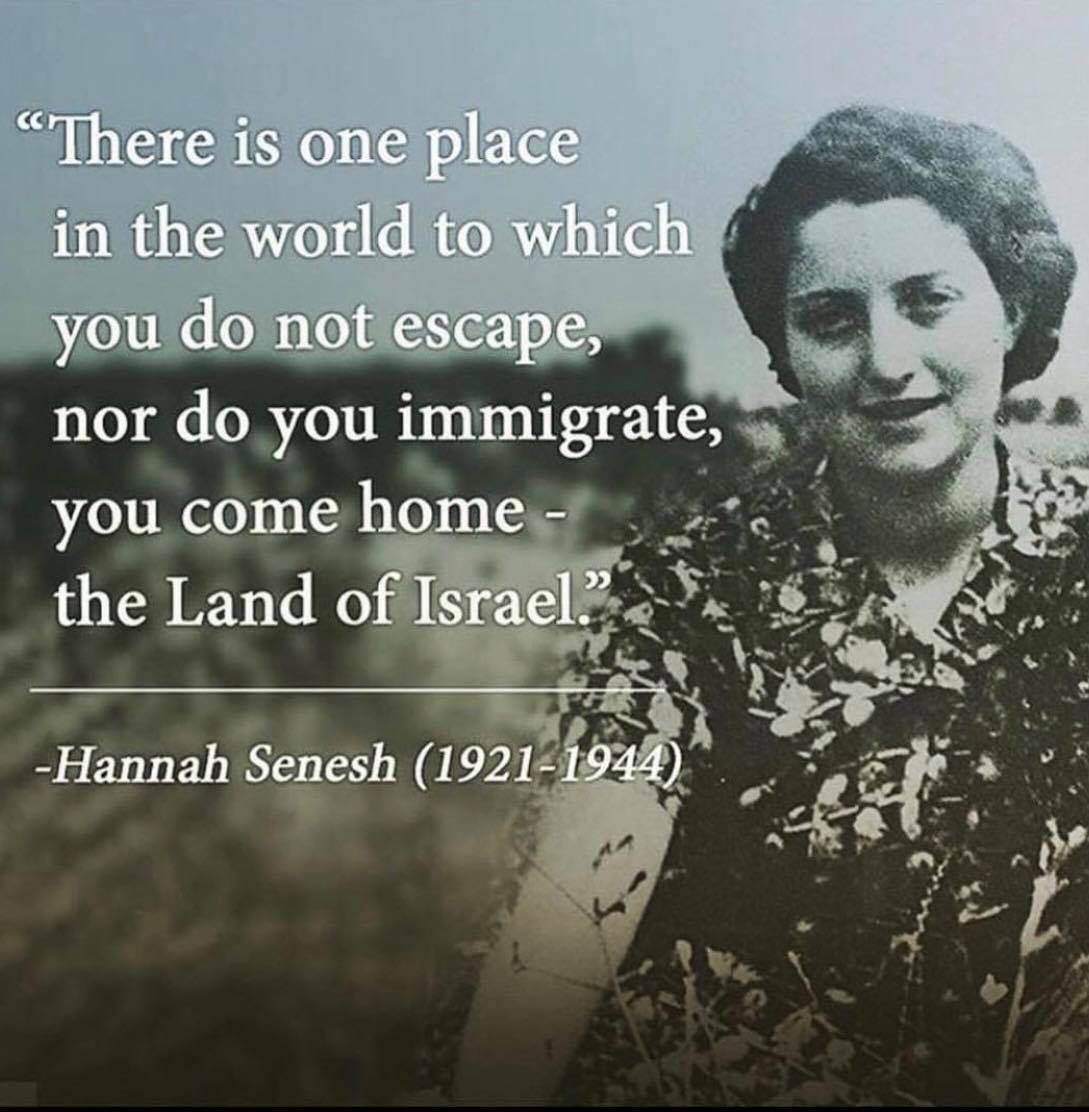
Hannah Szenes was born 100 years ago on July 17th, 1921, in Budapest, Hungary. Hannah was a young poet who valiantly tried to evacuate Jews from Hungary during the Holocaust. She enlisted in the British Women’s Auxiliary Air Force as an Aircraftwoman 2nd Class. In 1944, she and her colleagues parachuted into Yugoslavia to aid the anti-Nazi forces. When they landed, they learned Hungary was already occupied by Nazi Germany and called the mission off– but Hannah continued on and headed to the Hungarian border, where she was captured. The soldiers had found her British military transmitter that was used to communicate with other partisan groups. She was then taken to prison where she was repeatedly interrogated and beaten for the transmitter’s code in order to trap others, but Hannah never broke. The Hungarian authorities even brought Hannah’s mother in and threatened her– yet both mother and daughter refused, and shared walls of a prison cell together. She was eventually tried as a spy and stared her murderers in the eyes, refusing to be blindfolded when executed. Her poems, written in Hebrew and Hungarian, are widely famous– some turned into songs, Eli, Eli, or “A Walk to Caesarea”, being of the most famous. Hannah was a brave young hero who protected her own. May her memory be a blessing.
“There are stars whose radiance is visible on Earth though they have long been extinct. There are people whose brilliance continues to light the world even though they are no longer among the living. These lights are particularly bright when the night is dark. They light the way for humankind.” – Hannah Szenes
Contributor: Lauren Brinkman




